

Tourism HR Canada: A Sustainable Tourism 2030 Pledge Signatory

English | French
Provide a brief background/overview on your business/organization.
Tourism HR Canada is a pan-Canadian organization with a mandate aimed at building a world-leading tourism workforce. It facilitates, coordinates, and enables human resource development activities that support a globally competitive and sustainable industry and foster the development of a dynamic and resilient workforce. The organization works with the industry to attract, train, and retain valuable tourism professionals by giving them the tools and resources they need to succeed in their careers and entrepreneurial endeavours.
What was the first step your organization took or is taking to integrate sustainability into your strategic discussions as a team and into your operational plans?
At Tourism HR Canada, there have always been values and actions related to sustainability, and this workplace culture stimulated like-minded team members to start a conversation around structuring this journey towards building a more resilient, inclusive, and sustainable workforce. The organization’s strengths are embedded in the large array of expertise and experience in the areas of sustainable development, ecotourism, and DEI. Once the committee was formalized, a task force was created to take the self-assessment and start developing an action plan, with the guidance and support of TIAC and GreenStep’s specialists.
Why was committing to improving sustainability an important decision for your business/organization?
When presented with the idea of developing this sustainability journey, the Board of Directors was 100% behind the team. Our President and CEO’s approach is clear: “Taking concrete, measurable actions to secure a vibrant future for our planet is not a choice; it’s a responsibility.”
As mentioned earlier, the organization’s mandate is about sharing sustainability and DEI values, and as a leading national partner, Tourism HR Canada has a responsibility towards the tourism sector, its stakeholders and founders, and of course the tourism workforce in all five industry groups. Committing to the Sustainable Tourism 2030 Pledge was a natural step towards fulfilling our mandate.
“Taking concrete, measurable actions to secure a vibrant future for our planet is not a choice; it’s a responsibility. We have a duty to protect our environment and ensure that future generations can partake in tourism, whether as a traveller, a local, or a professional. We are honoured to join the dozens of likeminded businesses and destinations across Canada determined to make a positive change and weave sustainability into their day-to-day practices.” — Philip Mondor, president and CEO of Tourism HR Canada
What is the main driver or motivator for your organization to incorporate sustainability actions into your day to day operations?
There was a lot of interest from several team members in joining the committee and getting involved. The team’s main driver and motivator was to take action to formalize internal sustainable practices before embedding these into projects and partnerships, a way to “walk the talk”. The Committee, called “Common Ground”, was empowered by the leadership team to assess the organization’s footprint, and identify priorities from the UN SDGs that would best represent our mandate, while taking additional training to help build an integrated and inclusive action plan. Participation in awareness activities was a success from the start.
What are a few goals or priorities that you have set for yourselves as an organization in the coming year, that relate to improving sustainability across the organization?
The organization will increase its sustainability performance each year, through to 2030, using an assessment based on the Global Sustainable Tourism Council criteria, and aligned with the United Nations Sustainable Development Goals (SDGs). Tourism HR Canada commits to measuring and improving its sustainability performance in the following ways:
- Continuously adjust its environmental, social, and governance (ESG) practices to lower its carbon footprint and grow its social handprint
- Develop and promote HR practices to build inclusive, diverse, equitable, accessible, leading (IDEAL) workplaces that support a globally competitive and sustainable industry
- Provide sustainable National Occupation Standards and quality training to build a skilled, diverse, inclusive, and resilient workforce
- Take the self-assessment and sustainability scorecard annually to measure its progress
Are there any initiatives or changes that were introduced or made recently that you would like to share?
Having an open and honest conversation at the internal level about our sustainability status and future journey was paramount, to make sure diverse and different points of view could be articulated and heard. Sharing a common vision, language, values, and goals was a priority for the organization. Small steps to improve our waste management were taken, with some team members managing compost and recycling items. Improving our general sustainable footprint was also an essential objective in choosing our next office location. Awareness activities and resources were developed and shared with the team (new Teams channel, DEI calendar, sustainability tips and newsletters, etc.), and new checklists were created to support sustainable practices for events and activities.
What benefits or positive impacts do hope to see as a result of becoming more focused on sustainability within the organization?
Joining the sustainability global movement and like-minded leaders in the Canadian tourism sector will help the organization grow and lead the way towards building a more competitive, inclusive, and resilient workforce. Clearly addressing these challenges now will help us in addressing the needs of our stakeholders, tourism operators, and employers in the long run, while taking into account the environment and host communities.
Research suggests that the current labour market is actively considering the sustainability practices and standards of a company or organization that they may be considering as a future employer. A recent survey by PwC suggests that “86% of employees prefer to support or work for companies that care about the same issues they do, and that they are seeking value alignment as a key driver in their job search”. Would you agree with this sentiment, and have you heard similar comments from the labour market research you have conducted?
We recently conducted a compensation study including a qualitative activity resulting in a report entilited “ Workplace Culture and Compensation: Insights from Operators ” (June 2023). Research showed that many businesses reorganized their teams and looked for ways to innovate their business models more generally. Some developed new strategies to reach new markets, while others decided to increase their investment in sustainable tourism and accelerate their external green certification . In the Recruiting Smarter section of the report, it is proposed that Businesses that align themselves with sustainable or regenerative practices, or who are committed to social equity and community involvement, can also appeal to job seekers looking for environmentally and socially impactful work . A bout Challenges Around Younger Workers , the reports states that Businesses need to show that they align with the values and concerns of their current and future employees. Commitments to sustainable and regenerative initiatives, partnerships with community organizations combatting local inequality, support for diversity, equity, and inclusion initiatives — these are all signals to young people that working for you, whether it’s working in a kitchen or at the front desk, is a meaningful application of their time and energies .
You recently became a signatory of the Sustainable Tourism 2030 Pledge, and have made a public commitment to improve the sustainability performance of your organization each year. Why was it important to your team to join this movement and show leadership in this area?
Taking the pledge was about commitment and solidarity. There are many things we can achieve as an organization, but we can’t do it alone. The tourism sector is often fragmented due to its size, diversity of industries, and regional realities. Participating in a global movement, showing leadership, and supporting our national and provincial/territorial partners makes all the difference.
“Tourism HR Canada looks forward to the opportunity to further its sustainable practices, and will provide annual updates of its progress under the Sustainable Tourism 2030 Pledge,” adds Mondor. “We are particularly committed to action around six relevant SDGs: quality education; gender equality; decent work and economic growth; reduced inequalities; sustainable cities and communities; and responsible consumption and production. The resources available through the Pledge will support our work in these key areas.”
What is one piece of advice you’d offer other business owners/managers looking to improve their own sustainability?
This is a journey, not a race, and nobody can do it alone. To achieve sustainable goals, we all need support from various partners within the sector, and from other industries. But most of all, you need a license to operate and the full support of the community (social license).
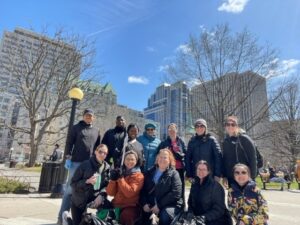
Visit www.tourismhr.ca to learn more about Tourism HR Canada.
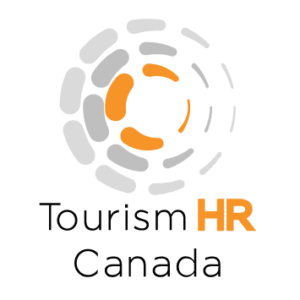
Portrait des signataires de l’engagement RH Tourisme Canada
Fournissez un bref historique ou aperçu de votre entreprise/organisation.
RH Tourisme Canada est une organisation pancanadienne dont le mandat vise à constituer une main-d’œuvre touristique de premier plan à l’échelle mondiale. Elle facilite, coordonne et permet des activités de développement des ressources humaines qui soutiennent une industrie durable et compétitive à l’échelle mondiale et favorisent le développement d’une main-d’œuvre dynamique et résiliente. L’organisation collabore avec l’industrie pour attirer, former et retenir des professionnels du tourisme de valeur en leur donnant les outils et les ressources dont ils ont besoin pour réussir leur carrière et leurs projets d’entreprise.
Quelle a été la première étape entreprise par votre organisation ou en cours d’intégration de la durabilité dans vos discussions stratégiques en tant qu’équipe et dans vos plans stratégiques ?
RH Tourisme Canada a toujours prôné des valeurs et des actions liées à la durabilité, et cette culture de travail a inspiré des membres de l’équipe partageant les mêmes idées à entamer une conversation sur la structuration de ce cheminement vers le développement d’une main-d’œuvre plus résiliente, plus inclusive et plus durable. Les forces de l’organisation reposent sur un large éventail d’expertises et d’expériences dans les domaines du développement durable, de l’écotourisme et de la DEI. Une fois le comité officialisé, un groupe de travail a été créé pour procéder à l’auto-évaluation et commencer à élaborer un plan d’action, avec les conseils et le soutien de l’AITC et des spécialistes de GreenStep.
Pourquoi la décision de s’engager dans l’amélioration de la durabilité était-elle importante pour votre entreprise/organisation ?
Lorsqu’on lui a présenté l’idée d’élaborer ce projet de développement durable, le conseil d’administration a soutenu l’équipe à 100 %. L’approche de notre président-directeur général est claire : « Prendre des mesures concrètes et mesurables pour assurer un avenir dynamique à notre planète n’est pas un choix, c’est une responsabilité. »
Comme nous l’avons mentionné précédemment, le mandat de l’organisation porte sur le partage des valeurs de durabilité et de DEI, et en tant que partenaire national de premier plan, RH Tourisme Canada a une responsabilité envers le secteur du tourisme, ses intervenants et ses fondateurs, et bien sûr la main-d’œuvre touristique des cinq sous-secteurs de l’industrie. S’engager à respecter la promesse de Tourisme durable 2030 était une étape naturelle dans l’accomplissement de notre mandat.
« Prendre des mesures concrètes et mesurables pour assurer un avenir dynamique à notre planète n’est pas un choix ; c’est une responsabilité », déclare Philip Mondor, président et chef de la direction de RH Tourisme Canada. « Nous avons le devoir de protéger notre environnement et de garantir que les générations futures puissent s’impliquer dans le tourisme, que ce soit en tant que voyageur, citoyen ou professionnel. Nous sommes honorés de nous joindre aux nombreuses entreprises et destinations partageant les mêmes idées à travers le Canada, déterminées à apporter un changement positif et à intégrer la durabilité dans leurs pratiques quotidiennes. »
Quel est le principal moteur ou motivateur pour votre organisation d’incorporer des actions durables dans ses opérations quotidiennes ?
Plusieurs membres de l’équipe ont manifesté un grand intérêt pour rejoindre le comité et s’y impliquer. Le principal moteur et facteur de motivation de l’équipe était de prendre des mesures pour formaliser les pratiques durables internes avant de les intégrer dans des projets et des partenariats, une façon de “joindre le geste à la parole”. Le comité, appelé “Common Ground”, a été habilité par l’équipe de direction à évaluer l’empreinte de l’organisation et à identifier les priorités des ODD des Nations unies qui représenteraient le mieux notre mandat, tout en suivant une formation supplémentaire pour aider à élaborer un plan d’action intégré et inclusif. La participation aux activités de sensibilisation a été un succès dès le départ.
Quels sont quelques objectifs ou priorités que vous avez fixés en tant qu’organisation, liés à l’amélioration de la durabilité à travers l’ensemble de l’organisation?
L’organisation augmentera sa performance en matière de durabilité chaque année, jusqu’en 2030, à l’aide d’une évaluation fondée sur les critères du Conseil mondial du tourisme durable et alignée sur les Objectifs de développement durable (ODD) des Nations Unies. RH Tourisme Canada s’engage à mesurer et à améliorer sa performance en matière de durabilité de la façon suivante :
- Ajuster continuellement ses pratiques environnementales, sociales et de gouvernance (ESG) afin de réduire son empreinte carbone et d’accroître son impact social.
- Développer et promouvoir des pratiques RH pour créer des lieux de travail inclusifs, diversifiés, équitables, accessibles et de premier plan (IDÉAL) qui soutiennent une industrie durable et compétitive à l’échelle mondiale.
- Fournir des normes professionnelles nationales durables et une formation de qualité afin de constituer une main-d’œuvre qualifiée, diversifiée, inclusive et résiliente.
- Effectuer chaque année l’auto-évaluation et le tableau de bord de développement durable pour mesurer les progrès accomplis
Des recherches suggèrent que le marché du travail actuel tient compte activement des pratiques et des normes de durabilité d’une entreprise ou d’une organisation qu’ils envisagent comme futur employeur. Une enquête récente de PwC suggère que “86 % des employés préfèrent soutenir ou travailler pour des entreprises qui se préoccupent des mêmes problèmes qu’eux, et qu’ils recherchent l’alignement des valeurs comme un facteur clé dans leur recherche d’emploi”. Seriez-vous d’accord avec ce sentiment, et avez-vous entendu des commentaires similaires dans les recherches sur le marché du travail que vous avez menées ?
Nous avons récemment mené une étude sur la rémunération comprenant une activité qualitative qui a donné lieu à un rapport intitulé « Culture du milieu de travail et rémunération : Les points de vue des exploitants » (juin 2023). La recherche a montré que de nombreuses entreprises ont réorganisé leurs équipes et ont cherché des moyens d’innover dans leurs modèles d’affaires de manière plus générale. Certaines ont développé de nouvelles stratégies pour atteindre de nouveaux marchés, tandis que d’autres ont décidé d’augmenter leurs investissements dans le tourisme durable et d’accélérer leur processus externe de certification verte . Dans la section « Recruter plus intelligemment » du rapport, il est proposé que les entreprises qui s’alignent sur des pratiques durables ou régénératrices, ou qui s’engagent en faveur de l’équité sociale et de l’engagement communautaire, puissent également attirer les demandeurs d’emploi à la recherche d’un travail ayant un impact environnemental et social . En ce qui concerne les défis liés aux jeunes travailleurs , le rapport indique que les entreprises doivent montrer qu’elles s’alignent sur les valeurs et les préoccupations de leurs employés actuels et futurs. Les engagements en faveur d’initiatives durables et régénératrices, les partenariats avec des organisations communautaires luttant contre les inégalités locales, le soutien aux initiatives en faveur de la diversité, de l’équité et de l’inclusion sont autant de signaux qui indiquent aux jeunes que travailler pour elles, que ce soit dans une cuisine ou à la réception, est une utilisation pertinente de leur temps et de leur énergie.
Vous êtes récemment devenu signataire de l’Engagement pour un Tourisme Durable 2030, et vous avez pris un engagement public pour améliorer chaque année la performance de durabilité de votre organisation. Pourquoi était-il important pour votre équipe de rejoindre ce mouvement et de montrer du leadership dans ce domaine ?
Cette promesse est une question d’engagement et de solidarité. Nous pouvons accomplir beaucoup de choses en tant qu’organisation, mais nous ne pouvons pas y parvenir tout seul. Le secteur du tourisme est souvent fragmenté en raison de sa taille, de la diversité des sous-secteurs et des réalités régionales. Participer à un mouvement mondial, faire preuve de leadership et soutenir nos partenaires provinciaux et territoriaux fait toute la différence.
Quel est un conseil que vous offririez aux autres propriétaires ou gestionnaires d’entreprises qui cherchent à améliorer leur propre durabilité ?
Cette démarche est un parcours, pas une course, et personne ne peut y arriver de manière totalement isolée. Pour atteindre des objectifs de développement durable, nous avons tous besoin du soutien de divers partenaires au sein du secteur et d’autres industries. Mais surtout, il faut disposer de la permission de mener des activités et du soutien total de la communauté (licence sociale).
— www.tourismhr.ca/fr/
Watch our Employer Compass videos to learn trusted tips on leading strong, successful, motivated teams.
Tourism can take you there
Forge your own path with a career in tourism.
Your next career move could be your greatest journey yet. Discover what’s out there.
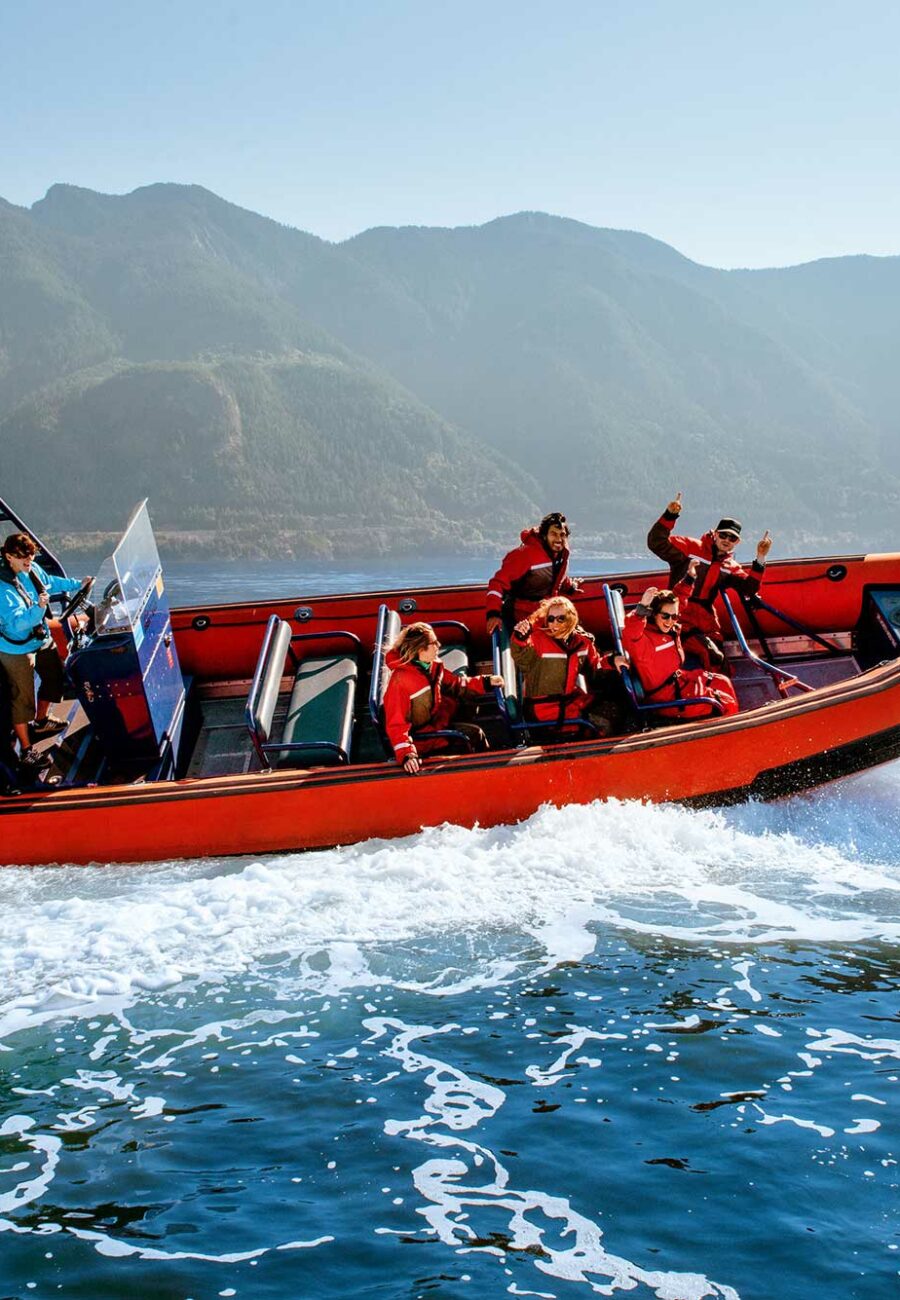
Adventure Tourism
Curiosity, boldness, and a passion for discovery will take you far in this thrilling industry. .

Cultivate the comforts of home for travellers visiting from around the world.

Restaurants
Delight visitors through the art of food—the complex flavours, savoury aromas, and creative presentation. .

Event Management
Create meaningful experiences that bring people together through music, entertainment, and visual spectacle..

By air, sea, railways or roads—explore new horizons and help others along on their journey.

CULTURAL TOURISM
Celebrate canada’s vibrant history and diversity by sharing our stories with the world..

Elevate and Explore Black Nova Scotia
She started a tourism business—and welcomed an entire community to Nova Scotia

This Explorer Embraces Travel in Life and at Work

Wapusk Adventures
One man’s passion for sharing his culture led him to return home—and stay

Raw Almond / Nola
A classical pianist took a part-time kitchen job—and it changed her entire life

Canadian Live Music Association
How one musician’s career soared to incredible new heights

Geldert Guest House
One couple’s search for a new home led to a new career
What kind of explorer are you?
Find the resources you need, wherever you’re at..
- Suggestion 1
- No results found

Lead the way for the next generation of tourism workers.

Job Seekers
Are you ready for a change of scenery?

Tourism Workers
Build the skills to grow further in your career.

Show your students what a future in tourism can offer them.

Career Advisors
Help talented people find where they fit.

Adventure awaits. Where will you find it?
Featured Tools & Resources
Employer compass series: 7 factors of a healthy work environment.
In this video, learn about the seven factors that influence a healthy work environment, and how you can foster an environment of collaboration, respect, and initiative.
Interactive Career Map
From coast to coast, exciting career destinations and tourism opportunities await. Find them with our Tourism Across Canada Map.
Employer Compass Series: Do These Hazards Exist in Your Business?
To learn how you can make your workplace safe for everyone, click the link to watch our video.
Is Tourism Right for Me?
Let your interests guide the way. Whether you have a love of fine foods, an eye for good art, or a thirst for adventure, there’s a career for you in tourism that will spark excitement. Find it here!
Managing Your Workforce: An HR Self-Assessment
Use this self-assessment checklist to ensure your skills and employment practices are up to standard, so you can lead your team to continued success.
Employer Compass Series: 5 Ways to Improve Employee Retention
Using some of the tips outlined in this video, you can make sure your employees feel recognized, respected, and fulfilled.
- Skip to main content
- Skip to primary sidebar
- Skip to footer

Choose Tourism
Welcome to emerit
Canada’s award winning training resources developed by the Canadian Tourism Human Resource Council (CTHRC) in collaboration with tourism industry professionals from across Canada. emerit offers support for:
Small Business A highly skilled workforce means bottom line profits.
Corporate and Chains Seamlessly integrate emerit skills training with your brand.
Education Superior skills create vast opportunities for success.
International Canadian made, internationally recognized training.
The benefits of emerit:
- emerit training products and programs are based on industry-defined standards, recognized across Canada. The range of emerit training products is incredibly diverse, encompassing many professional positions in the tourism sector. And they are created by professionals for professionals, making emerit the finest training resource available to the tourism sector.
- emerit works for everybody. Employees gain confidence from the increased recognition they receive from employers and co-workers. Businesses that have used the emerit line to enhance and recognize the skills of their employees in their respective fields continue to tell us about increases in repeat business, in word-of-mouth referrals, in incremental spending by loyal customers and efficiency of staff.
- The emerit brand includes National Occupational Standards, training tools, and Professional Certification program – all key components of the Council’s commitment to building the most professional Canadian tourism work force possible. The brand also includes online learning resources.
For more information on training your employees with emerit – please contact Alex MacKenzie at (902) 566-5008; Toll Free 1-866-566-5008 or email [email protected] .
Connect with Us
Phone: (902) 566-5008 Fax: (902) 368-3605 [email protected]
Subscribe to our H.R. Mailing List
Upcoming events.
There are no upcoming events.
- Add to Timely Calendar
- Add to Google
- Add to Outlook
- Add to Apple Calendar
- Add to other calendar
- Export to XML

- Shopping Cart
Powered by Skillbuilder ®

- Become a Member
- Payments & Renewals
- News & Media

- National Advocacy
- Transportation Advocacy
- Environmental Advocacy
- Financial Advocacy
Human Resource Advocacy
Best practice mission report: portland maine.
TIANS and the Nova Scotia Tourism Human Resource Council (NSTHRC), in partnership with the Nova Scotia Tourism Agency and the Atlantic Canada Opportunities Agency - NS, facilitated a Best Practice Mission to Portland, Maine. Read More
HR Whitepaper
Employee training is often seen as a luxury, especially when it seems business is challenged monthly to streamline and cut costs. But a lack of investment in employee training in order to save costs can have the opposite effect. A well-trained workforce can improve business productivity and efficiency, drive innovation and development and vastly alter a customer’s perception of the business. Skillsoft recently released a whitepaper highlighting the 7 Skills Every Employee should have in their skill set. This paper highlights those key skills that are vitally important for a prosperous, innovative and efficient business.
Dual Credentialing for Hotel General Managers!
Tourism HR Canada (formally Canadian Tourism Human Resource Council) and the American Hotel & Lodging Educational Institute (EI) finalized a credential recognition agreement that offers hotel managers the opportunity to hold credentials from both organizations. Each organization has agreed to award their credential to individuals who hold the other organization's designation. This means that for only a small cost to cover administration of the credential, a hotel manager who has earned the CHGM credential will also be awarded the CHA credential or vice versa. To find out how to earn these designations, please call 902.423.4480.
Have you checked out www.tourismopportunity.ca lately?
The Nova Scotia Tourism Human Resource Council continues to add the stories and perspective of the fascinating people who work in our industry across the province. Featuring video interviews with everyone from students getting their feet wet, to the owners and operators of some of our leading businesses, Tourism Opportunity is all about sharing the good news and depth of opportunities in one Nova Scotia's leading economic sectors – the tourism industry.
This month, in honour of maple season, we are delighted to feature the story of Quita Gray, from Sugar Moon Farm located in Earltown. Quita and her husband, Scott Whitelaw, had a love affair with agriculture and forestry and have combined those passions into Sugar Moon Farm. To hear more about Quita's tourism opportunity story , or hear from others in our industry, visit www.tourismopportunity.ca
Free Online Retention Tools for Tourism Operators! Two online retention tools are available to tourism operators at no cost! The Employee Turnover Cost Calculator and Return on Investment resources can be used by departmental supervisors, managers, and owners/operators. The Employee Turnover Cost Calculator is a national tool designed to assist operators in measuring the expense of employee turnover and compare it to more cost-effective retention strategies that will reduce turnover and increase profits. For more information and to download the program, please click here. The Return on Investment tool was designed to provide a means to identify the value of dollars invested in training related to the cost of training and the benefits achieved in increased sales, guest satisfaction, and productivity. The ROI tool's online format allows for ease of use by those in the industry wishing to see the financial impact training has on their business. To download the tool, please click here.
New trio of diversity workshops.
The Nova Scotia Tourism Human Resource Council offers an extensive family of service excellence training workshops which are designed to be interactive and have been developed for front-line employees, supervisors, and managers. The premise for our programs is that good service provided by knowledgeable staff will encourage repeat business. Through these workshops, employees will increase understanding of their customers, communicate more productively and achieve higher levels of collaboration with co-workers. Let us help you lead the way.
Customers with Disabilities: this half-day workshop teaches front-line employees how to increase their sensitivity toward people with disabilities and provides them with superior customer service skills that respect every customer's unique requirements.
Service Excellence in the Global Village: this three-hour workshop was developed to enhance awareness of customers and co-workers who are cultural, ethnically or linguistically different.
Mature Consumer: this is a one-day training session that helps businesses improve the way they serve the senior population. With the ever-increasing number of older patrons, businesses must learn how to benefit from the age-wave. Call 902.423.4480 to schedule a workshop in your area!
Study Groups
For the past decade, the Council has been hosting emerit National Certification study groups for Supervisor and Food and Beverage Manager. Employers now recognize that employees who successfully completed the study group and certification were more confident , developed stronger leadership skills and performance coaching techniques. For this reason, we have been experiencing a high volume of registrations and will be scheduling more study groups for 2016. We will be emailing TIANS Members the fall/winter 2016 schedule for study groups in Halifax. If you would like to be added to the waitlist for the next study group or are interested in a session in your region please call 902.423.4480.

New Programs!
The Nova Scotia Tourism Human Resource Council has secured the rights to the new WorldHost Program from the Province of BC. The workshop builds on the same principles as our original SuperHost but has a fresh new look and updated content. WorldHost was delivered as the training program for the Vancouver 2010 and London 2012 Olympic Games, giving this workshop a significant amount of brand identity. We will be offering a business recognition program as part of our program marketing plan.
We are also very pleased to be launching a ½ day program focused on Customers with Disabilities that is part of the WorldHost family. This workshop will assist service professionals in dispelling myths and developing their communication and service skills for customers who have disabilities. It also builds awareness of accessible services and attractions for visitors.
Call 902.423.4480 to book the new WorldHost and Customers with Disabilities sessions for your team today!
Mentoring Programs
- Privacy Statement
Internet Marketing by VERB
Stay Connected
Follow TIANS and receive the latest news, events, updates and member benefits.
email: [email protected]
Maps & Directions

CULTURAL HUMAN RESOURCES COUNCIL
The cultural human resources council (chrc) brings together cultural workers and employers to address training , career development and other human resource issues., announcements, industry leaders support federal budget extension of student work placement program, cultural worker’s individual revenue survey, student work placement program, chrc newsletter march 2024.
- IDEA roundtable
- Workforce survey
- CHRC travels
- Job Postings
Need help with your T4?

Search Site
Competency Charts and Profiles
Digital Media Film and Broadcasting Heritage (IRMS) Live Performing Arts Music and Sound Recording Writing and Publishing
Digital Media Film and Broadcasting Heritage (IRMS) Live Performing Arts Music and Sound Recording Visual Arts and Crafts Writing and Publishing
Course Content
Digital Media Film and Broadcasting Live Performing Arts Music and Sound Recording Visual Arts and Crafts Writing and Publishing
For Members
Exclusive content for CHRC members:

Tourism HR Canada is a pan-Canadian organization with a mandate aimed at building a world-leading tourism workforce. Tourism HR Canada facilitates, coordinates, and enables human resource development activities that support a globally competitive and sustainable industry and foster the development of a dynamic and resilient workforce.
To achieve this mandate, the organization responds to various labour market issues and invests in programs deemed necessary to address needs; for example:

Skills, productivity, job design
- Identify required skills, conduct research
- Design workplace training for skills upgrading
- Look at skills mismatches (e.g., supply/demand, skills attrition/obsolescence, skills deficits/surpluses, under-utilized skills)

Supply, attraction and retention
- Promote jobs opportunities and tourism careers
- Articulate career paths
- Provide tools and guidance for employers
- Recognize ‘Employers of Choice’ who are exemplary with practice

Learner and labour mobility
- Develop qualifications frameworks
- Provide tools to facilitate valuation and credit transfer
- Establish recognition and reciprocity agreements with foreign credential-granting bodies

Labour market/human capital strategies
- Conduct research
- Develop plans
- Facilitate policy discussion

Professional standards
- Set competency standards
- Promote training standards
- Define required competencies

Employer investments in training
- Promote and support employer investments in employee training and professional development
- Demonstrate return on training investment
- Improve training culture

Improved curriculum to respond to market demands
- Set guidelines for use by educators
- Conduct research on skills in demand
- Engage in academic advisory committees
- Ensure graduates are better prepared and fit for employment demands

Quality assurance, program accreditation, rating programs
- Set quality standards
- Accredit programs
- Conduct quality audits

Facilitate policy discussions
- Host forums
- Contribute to industry consultation events
- Participate in public policy consultation events

Labour market adjustments
- Develop plans to address local/regional needs
- Assess business and community labour markets

- Skip to main content
- Skip to main navigation
- Accessibility Statement
More topics
Tourism hr canada - occupational certification tourism – go2hr the resource for people in tourism.
View all Registered Courses
Students may receive credit for earning the following national occupational certificates issued by the Canadian Tourism Human Resource Council: Food and Beverage Server, Front Desk Agent, Housekeeping/Room Attendant, Tour Guide, Reservation Sales Agent, Guest Services Attendant, Tourism/Visitor Information Counsellor, Banquet Server, In British Columbia, go2 administers the process.
The extensive work experience component may be used by senior secondary students enrolled in Work Experience 12 or it may meet the portfolio work experience requirement.
Certificate or Official Document
The signed certificate is white with a two-tone green and two-tone blue swish on the left side. The words “professional certification” are followed by the individual’s name, one of the specialty areas listed above and the wording “has achieved the highest level of recognition as a Professional Certified specialty through mastery of the knowledge and skill in the National Occupational Standards established by the Canadian tourism industry.” The white emerit logo appears in the lower left corner.
Contact Information
Dennis Green, Director, Industry Training 450 – One Bentall Centre, 505 Burrard St., PO Box 59, Vancouver, BC V7X 1M3 Phone: 604.633.9787 ext 235 Fax: 604.633.9796 Email [email protected] Website: www.go2hr.ca
The B.C. Public Service acknowledges the territories of First Nations around B.C. and is grateful to carry out our work on these lands. We acknowledge the rights, interests, priorities, and concerns of all Indigenous Peoples - First Nations, Métis, and Inuit - respecting and acknowledging their distinct cultures, histories, rights, laws, and governments.
Growing the AgriWorkforce
The Canadian Agricultural Human Resource Council is a national, non-profit organization focused on addressing human resource issues facing agricultural businesses across Canada.
National Workforce Strategic Plan
Our partners.
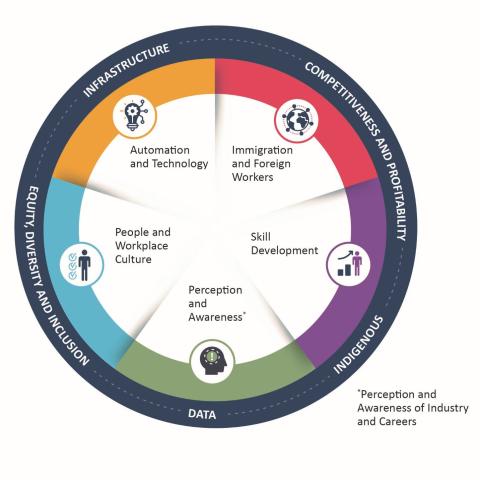
CAHRC, together with partners the Canadian Federation of Agriculture (CFA) and Food and Beverage Canada (FBC-ABC) have announced the launch of the National Workforce Strategic Plan for Agriculture and Food and Beverage Manufacturing .
Read the news release

Whether you manage HR full time or it is one of many hats, we have your tools for success.

Growing Opportunities: Work Integrated Learning opportunity for post-secondary students

Partnership is vital to our mission. With the support of our partners, we address the workforce challenges of Canada’s agriculture and agri-food industry.
Programs and Initiatives
AGRI LMI is a program focused on assessing the current agricultural labour market, projecting the future supply and demand for agricultural workers, and recommending potential solutions to the sector's labour issues.
AGRI Jobs supports the agricultural industry and employers by building nationally validated job information to clarify skills requirements for agricultural positions. In partnership with the AGRI Skills program, this job information provides tools that are targeted training options for agricultural employers, employees, associations and educators.
AGRI Skills
Practical, targeted training options for agricultural employers, employees, associations and educators, the AGRI Skills Program addresses agriculture's biggest workforce challenges and supports the development of a productive, profitable business.
AGRI Talent
AGRI Talent supports the development of connections and networks among post-secondary students, institutions and employers and contribute towards preparing a job ready workforce. These networks will help bridge the gap between respective groups and create sustainable relationship for the future.
AGRI Workforce Issues
AgriWorkforce Issues is a program focused on assessing the current agricultural labour market, projecting the future supply and demand for agricultural workers, and recommending potential solutions to the sector’s labour issues.
AGRI Diversity
CAHRC recognizes that women, Aboriginal people, immigrants, and persons with disabilities are underrepresented and have a valuable role to play in the agricultural workforce. CAHRC supports workplace diversity by developing practical tools designed to help agricultural employers become an inclusive, supportive employer of choice.
Tools at your disposal

Learn how to support and manage your workforce.
Turnover Calculator
Determine the cost of an employee who is leaving.

Online Training
eLearning modules to keep your agricultural business up to date with the most current HR standards and best practices.

Benchmarking Tool
Turnover happens. See how your turnover compares to the industry benchmark.

Sector Action Plans
Tools, templates, and guidance to support employers with finding, developing, and retaining the workforce they need to succeed.
Data and Insights
Canada's agriculture sector is incredibly diverse. from british columbia’s fisheries to saskatchewan’s grain fields to the dairies of newfoundland and labrador, the sector comprises very different industries, commodities, regions, and work environments..

Provincial Data
Canada’s agriculture sector plays a role in every province’s economy, but differences in the mix of industries, the population trends, and other factors create unique labour challenges for each one. For example: • Alberta's agriculture sector is likely to face a significant retirement wave expected between 2023 and 2030, with 40% of the current domestic workforce projected to retire. • Ontario’s agriculture labour gap is projected to increase by 15% by 2030. This is heightened by the declining supply of domestic workers. • New Brunswick has limited exposure to career opportunities in the agriculture sector and declining populations in rural areas, making recruitment more challenging compared to other provinces. While no two provinces have the same profile, all face significant agricultural labour challenges today and in the years ahead. Learn more by accessing fact sheets for Alberta, British Columbia, Manitoba, New Brunswick, Newfoundland and Labrador, Nova Scotia, Ontario, Prince Edward Island, Quebec, and Saskatchewan in the document library . Visit the interactive data dashboard .
Industry Data
Employers in every agriculture industry area face unique challenges and advantages when it comes to attracting and retaining the skilled workers they need to thrive. For example: • The dairy industry faces a persistent struggle to find domestic workers with the required skills. • The greenhouse, nursery, and floriculture industry faces recruitment challenges due to the increasing demand for manual labour-intensive positions, exacerbated by high turnover rates, low pay and seasonality • Aquaculture operations labour challenges are primarily recruiting and retaining skilled workers due to factors such as remote locations of operations, ongoing rural depopulation, limited transportation options and wage competition. While the issues are different for every industry area, they all face significant labour challenges today and in the years ahead. Visit the document library to learn more about the specific impact of these challenges on each of Canada's 11 commodity areas: apiculture, aquaculture, beef, dairy, fruit and vegetable, grain and oilseed, greenhouse, nursery & floriculture, poultry and egg, sheep and goat, swine, and agriculture support services. Visit the interactive data dashboard .

Our Partners and Collaborators

Our Services

Our expert team works directly with organizations to determine key issues and find the best solutions for their needs.

We develop custom webinars to help you reach your primary workforce.

We are committed to facilitating strong and meaningful connections between colleagues.

IMAGES
VIDEO
COMMENTS
Tourism HR Canada. Tourism HR Canada is a pan-Canadian organization with a mandate aimed at building a world-leading tourism workforce. It facilitates, coordinates, and enables human resource development activities that support a globally competitive and sustainable industry and foster the development of a dynamic and resilient workforce. The ...
Tourism HR Canada is a pan-Canadian organization with a mandate aimed at building a world-leading tourism workforce. Tourism HR Canada facilitates, coordinates, and enables human resource development activities which support a globally competitive and sustainable industry and foster the development of a dynamic and resilient workforce.
Tourism HR Canada | 7,649 followers on LinkedIn. A pan-Canadian organization with a mandate aimed at building a world-leading tourism workforce. | With close to 30 years' experience in developing ...
Tourism HR Canada. Tourism HR Canada is a pan-Canadian organization with a mandate aimed at building a world-leading tourism workforce. Tourism HR Canada facilitates, coordinates, and enables human resource development activities which support a globally competitive and sustainable industry and foster the development of a dynamic and resilient workforce.
The Canadian Tourism Human Resource Council is a national organization that facilitates and co-ordinates human resoure development activities which support a globally competitive and sustainable ...
The Canadian Tourism Human Resource Council has launched a national brand, known as "emerit," of tourism training, standards and professional certification. The new website, located at www.emerit.ca, offers a one-stop shop for information on training and professional recognition in both French and English. "It's a learning resource for ...
Director of the Tourism Human Resource Council of Nova Scotia. " Rebuilding the tourism workforce is of top concern to our sector. Collective efforts are required to ensure Canada has the talent to ... Tourism HR Canada. is a pan -Canadian organization with a mandate aimed at building a world - leading tourism workforce. It facilitates ...
Tourism HR Canada is a pan-Canadian organization with a mandate aimed at building a world-leading tourism workforce. It facilitates, coordinates, and enables human resource development activities that support a globally competitive and sustainable industry and foster the development of a dynamic and resilient workforce.
Using some of the tips outlined in this video, you can make sure your employees feel recognized, respected, and fulfilled. Tourism HR Canada is a pan-Canadian organization with a mandate aimed at building a world-leading tourism workforce. Read more….
Welcome to emerit Canada's award winning training resources developed by the Canadian Tourism Human Resource Council (CTHRC) in collaboration with tourism industry professionals from across Canada. emerit offers support for: Small Business A highly skilled workforce means bottom line profits. Corporate and Chains Seamlessly integrate emerit skills training with your brand. Education Superior ...
The tourism industry is getting an $8-million infusion to promote a skilled workforce, the federal government announced this week. The announcement was part of a larger one that included funding for the Cultural Human Resource Council. The funds will be provided to the Canadian Tourism Human Resource Council through the Sector Council Program ...
emerit Tourism Training offers national occupational standards, training, certification, and business HR tools for the tourism and hospitality sector.
statistics, Tourism HR Canada (formerly the Canadian Tourism Human Resources Council) forecast that by 2030, one in four Canadians will be 65 years or older, with the number of people aged 15-24 ...
HR Whitepaper. Employee training is often seen as a luxury, especially when it seems business is challenged monthly to streamline and cut costs. But a lack of investment in employee training in order to save costs can have the opposite effect. ... Tourism HR Canada (formally Canadian Tourism Human Resource Council) and the American Hotel ...
The Cultural Human Resources Council (CHRC) brings together cultural workers and employers to address training, career development and other human resource issues. ... played a crucial role in providing work-integrated learning opportunities to students and addressing skills gaps in the Canadian economy since its inception. Read More. April 12 ...
Tourism HR Canada. Tourism HR Canada is a pan-Canadian organization with a mandate aimed at building a world-leading tourism workforce. Tourism HR Canada facilitates, coordinates, and enables human resource development activities which support a globally competitive and sustainable industry and foster the development of a dynamic and resilient workforce.
View all Registered Courses. Students may receive credit for earning the following national occupational certificates issued by the Canadian Tourism Human Resource Council: Food and Beverage Server, Front Desk Agent, Housekeeping/Room Attendant, Tour Guide, Reservation Sales Agent, Guest Services Attendant, Tourism/Visitor Information Counsellor, Banquet Server, In British Columbia, go2 ...
The $108 million Tourism Growth Program was announced in Budget 2023. The Tourism Growth Program complements supports for the tourism industry provided through other federal, provincial and territorial programs. In 2023, Canada welcomed 12.6 million international tourists in the first eight months, a 54% increase from the same period in 2022. 1.
The Canadian Agricultural Human Resource Council is a national, non-profit organization focused on addressing human resource issues facing agricultural businesses across Canada. ... Our communications include the latest HR news and events that matter to those working in Canada's agriculture and agri-food industry. Email Address / Courriel *
Canadian Tourism HR Council & emerit Issued Oct 2014 Expires Oct 2024. Volunteer Experience Vice - Chair Hamilton Hotel Association May 2019 - Present 5 years. Politics Active participation in meetings and social networking to promote Hamilton as a Hospitality destination and attract new business for the Hotel Industry. ...